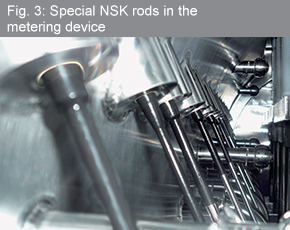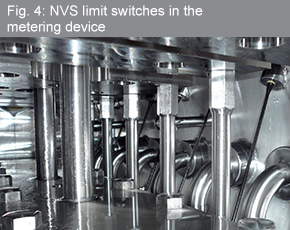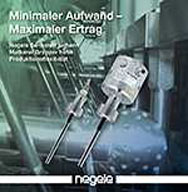Minimum Investment – Maximum Return, Retrofitting of a filling plant ensures high flexibility for Gropper Dairy
Dairy
Application Detail
In the 80 years since the Gropper Dairy was founded in 1929, the family-run business has succeeded in becoming a leading German filler of fresh dairy products. In addition to distributing its own brand, Gropper has used a strategy of investment and innovation to drive growth in the areas of private labels and co-packing. Based on extensive experience in product development, the Gropper Dairy is today able to offer superb quality coupled with high flexibility and optimal technical conditions. Gropper works in close cooperation with well-known producers of brand products as well as with national and international discounters, providing them with a full range of services. The company has about 370 employees and currently processes approximately 150 million kilograms of milk annually. Products are filled into containers with diameters of 75 mm or 95 mm, as well as various sizes of gable top cartons and PET bottles.
In 2008, Gropper took an ultra-modern plant for filling small bottles into service. Originally, this plant was used to bottle milk and mixed yogurt beverages in bottle sizes from 100 to 250 milliliters. Through continuous adaptation and optimization of the plant, it is now also possible to fill drinking yogurt, whey and juice products, mixed milk products, fruit milk, mixed coffee-milk beverages and smoothies in PET bottles sized 65-330 ml. The core of the plant is the bottle filling machine, which operates linearly in a double 7-lane system and enables 4-color filling with a maximum of 36 cycles. It achieves a maximum output of 576 bottles per minute
High-precision fi lling level measurement

Optimal mounting of sensor components

Negele‘s flexibility both in terms of design and production made it possible to retrofit the sensors using the existing connectors of the previous electronics, saving time-intensive and costly modifications of the process connections and the plant. We are pleased that the Gropper Dairy trusts in Negele measuring equipment to help achieve their high production flexibility and quality standards.


.png)
.png)
Copyright © 2022 Anderson-Negele